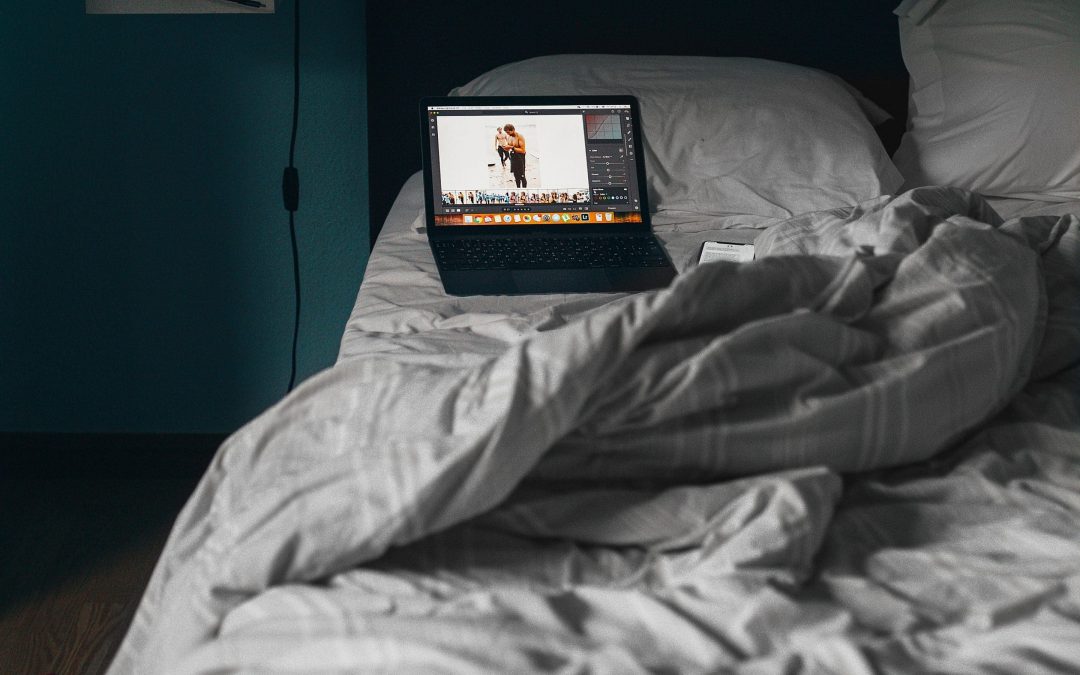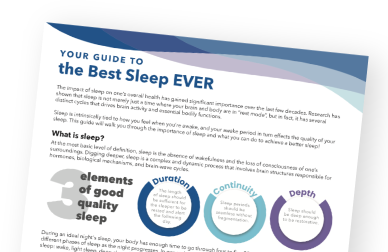As if life wasn’t stressful enough, the impact from COVID-19 has amped up everyone’s anxiety levels. From financial worries to protecting to the health of ourselves and loved ones, there is a lot more to think about these days. During the day, it’s easier to keep busy and keep those nagging thoughts at bay…however, it’s a lot harder at bedtime to calm the mind and prepare for sleep.
Although it’s important to not completely stick your head into the sand and ignore your feelings, quality sleep is essential to your mental well-being and improves your coping capabilities.
Insomnia is a common sleeping disorder that can make it hard to fall asleep, stay asleep, or wake too early and not be able to go back to sleep. According to a 2002 study, an estimated 13,.4% (3.3 Canadians) of the household population aged 15 or older had some level of insomnia.
The strong connection between anxiety levels and ability to fall asleep can be a hurdle, but it also can shed light onto strategies we can try to help easy our mind and reduce frustration:
1) Sleep Environment
It’s important that your brain connects your bedroom for the purpose sleep and romance only…not watching TV, doing work, or exercising. This helps you separate all the other things you may be thinking about and encourage relaxation.
- Temperature: Aim for around 18.5 degrees Celsius/ 65 degrees Fahrenheit
- White noise: Turn on a bathroom fan or use set a white-noise maker to low.
- Dark room: Close your blind or curtains.
- Tidy your room: Helps you feel in control and create a calm vibe.
- Routine: Try to stick to a similar bedtime.
- Essential Oils: Calming scents such as lavender have been shown to have success in reducing anxiety and promote sleep.
2) Before Bed
You’re not a machine that can just be turned off with an on/off switch! You need to prepare your body and mind for rest in the time-period leading up to going to bed.
- Time your exercise right: Working out speeds up your metabolism, elevates body temperature, and stimulates hormones such as cortisol. Try to finish moderate to vigorous exercising at least three hours before bedtime.
- Relaxing activities: Low-impact exercises such as yoga or gentle stretching, warm bath, and reading can promote sleep.
- Avoid alcohol and caffeine.
- Avoid bright screens and reading your phone in bed.
- Write a short list of things to do for the next day: This may seem counterintuitive, but it can help you “remove” those tasks that are running through your head to help you feel more in control and organized.
3) Calm your mind
There’s nothing worse than lying in bed, staring at the ceiling, and trying to force yourself to sleep. We should look forward to sleep, not be dreading the process. Instead of getting frustrated or thinking about all the things that worry you, try these thought exercises to push out the anxiety and bring on the sleep.
- Enjoyable scenarios: Take yourself back to memorable vacations or something in your future you’re looking forward to. If nothing comes to mind…make something up! Design your dream house or think about what it would be like to travel to a unique destination. Focus on the details, such as the sand under your toes or what sounds you hear. Just don’t daydream anything too exciting or it might have the opposite effect and you won’t doze off.
- Focus on your breathing: Place one hand on your chest and the other on your belly. Breath in through your nose and hold for two seconds, feeling your belly expand, then slowly exhale. Repeat.
- Boring thinking games: Remember the mantra that worrying doesn’t solve problems, it just makes you feel uncomfortable. Keep your mind from racing with these exercises:
- Spelling easy words backwards.
- Naming animals that start with a particular letter.
- Make a list from a particular category, such as flowers, dog breeds, sports teams.
4) Get out of bed
If you’re really stuck on not falling asleep and your tossing and turning, it may be time to get out of bed and take a break from trying. Go out of your room and do something that is not too stimulating. Avoid doing any work tasks or watching TV.
- Read a book
- Listen to music
- Stretching or relaxation exercises
5) Talk to your physician
If you feel that you’re still having major issues falling asleep or getting a quality sleep, the best course of action is to discuss with your physician. They will ask questions to learn more about your challenges and screen for potential underlying sleep disorders.
Prior to visiting with your physician, you may want to keep a sleep diary so that you can understand your sleep pattern better and provide your physician with more information. Also, if you have a bed partner, ask them about whether they hear you snoring or gasping for air at night. It can provide important clues about your sleep health.
Final Thoughts
Figuring out how to fall asleep takes practice and time. Everyone is unique and these strategies may not work for everyone. Remember is that the mind is often the biggest hurdle to overcome, and that by learning how to decrease worries and thoughts about tasks to complete will allow your mind and body the opportunity to rest.
Aveiro Sleep provides Home Sleep Apnea Testing, CPAP therapy and support services catered to obstructive sleep apnea. Our local clinics allow us to test, treat, and support thousands of Albertans close to their homes.
Call now to speak to a Patient Success Coordinator 1-855-852-2989 or contact us through our online form.
Source: 2002 Canadian Community Health Survey: Mental Health and Well-being https://www150.statcan.gc.ca/n1/pub/82-003-x/2005001/article/8707-eng.pdf




